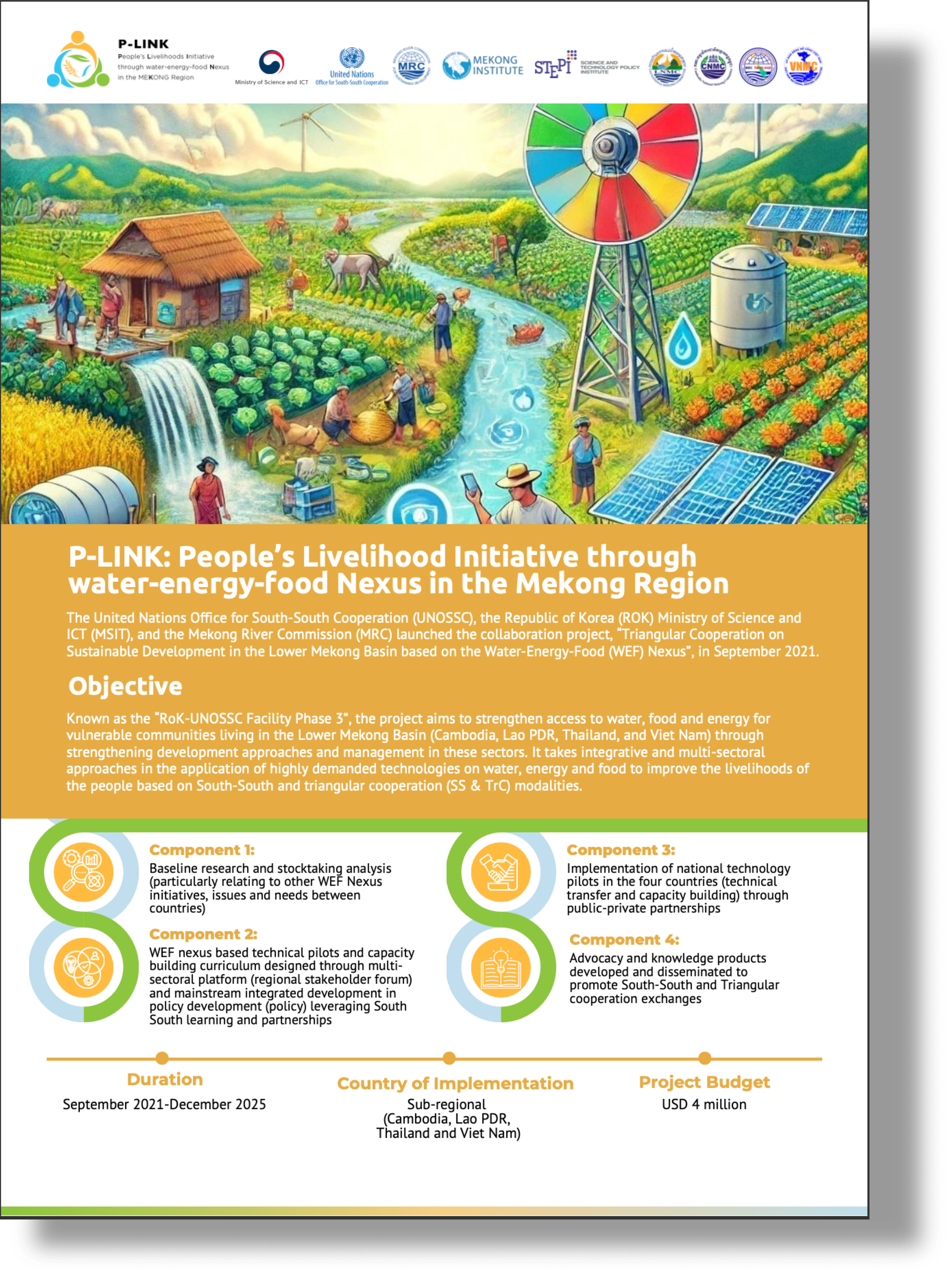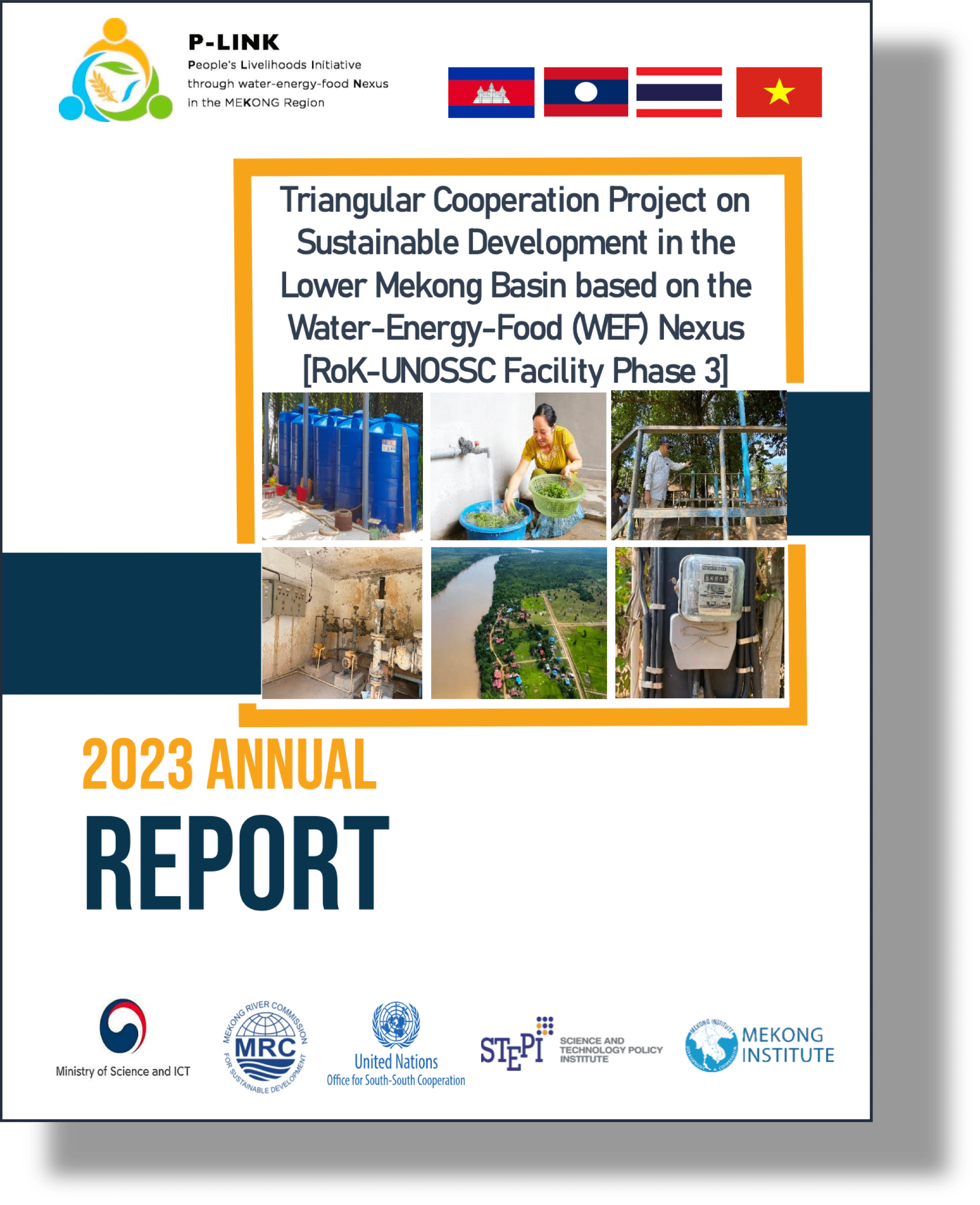
RoK-UNOSSC Facility Phase 3: Triangular Cooperation Project on Sustainable Development in the Lower Mekong Basin based on the Water-Energy-Food Nexus
Project Scope and Focus
The United Nations Office for South-South Cooperation (UNOSSC), the Republic of Korea Ministry of Science and ICT (MSIT), and the Mekong River Commission (MRC) launched the collaboration project, “Triangular Cooperation on Sustainable Development in the Lower Mekong Basin based on the Water-Energy-Food (WEF) Nexus”, in September 2021. The project, also known the “RoK-UNOSSC Facility Phase 3”, aims to strengthen access to water, food and energy for vulnerable communities living in the Lower Mekong Basin (Cambodia, Lao PDR, Thailand, and Viet Nam) through strengthening development approaches and management in these sectors.

It will take integrative and multi-sectoral approaches in the application of highly demanded technologies on water, energy and food to improve the livelihoods of the people based on South-South and triangular cooperation (SS & TrC) modalities.
The 5-year project is supported by the Ministry of Science and ICT of the Republic of Korea, and the UNOSSC leads the project implementation in conglomerate with other institutions including the Mekong River Commission Secretariat (MRCS), Mekong Institute (MI) and the Science and Technology Policy Institute (STEPI) of Korea and will enlist the help of other UN Agencies.

Development Context/Background
The Mekong River is the longest river in Southeast Asia, it runs approximately 4,900 km from the Tibetan Plateau in China to the South China Sea in southern Viet Nam. The Mekong region consists of Cambodia, Lao PDR, Myanmar, Viet Nam, Thailand and some Chinese Provinces, namely Yunnan and Guangxi Zhuang Autonomous Region. Geographically, the region is divided into Upper Mekong Basin (Myanmar and China) and
Lower Mekong Basin (Cambodia, Lao PDR, Thailand and Viet Nam). Approximately 72 million people live and derive their livelihoods in the Mekong basin area.
The Mekong basin, “a basin of one of the world’s greatest rivers” is facing unprecedented challenges including loss of wetlands, reduced sediments nourishment, and rising salinity that is increasingly impeding rice cultivation. These adverse impacts have been coupled with the COVID-19 pandemic, natural disasters, climate change and human activities that are creating hardship for millions of vulnerable fishing and farming families.
Project Approach, Outcomes & Outputs
The project will model a set of pilots within the first two years and implement them in the next three years. The modelling will be guided by the stakeholders and the location of pilots as identified by the LMB countries. The technology to mitigate climate change will be driven by lessons learnt from SS & TrC. The project will also build on the work undertaken by Basin institutions as a way to build a complementary process to the RoK/UNOSSC Facility.

Demand-driven approach
The project is designed based on demand-driven programming and will be implemented within the framework of the partner countries’ planning frameworks and the involvement of regional intergovernmental institutions.

Cross-sectoral and integrated approach through multi-stakeholder engagement
The project will have a multiplicity of stakeholders, that is, government, intergovernmental organisations, communities, the private sector and civil society. It will be supported by the UN with the development cooperation modalities and concepts of sustainability, SS & TrC as overriding issues. Along with the thematic focus areas of water, energy and food, the project will use science, technology and innovation for remedies to the development challenges in the Mekong Basin.
Participating Korean institutions are expected to be from government and the private sector. To help achieve the 2030 Agenda for Sustainable Development, multidisciplinary approaches with clear focus should be taken to develop comprehensive solutions and produce meaningful change on the ground.
Results Framework

Overall Project Implementation Structure

Contribution/Adherence to other Development Frameworks
Featured Documents and Knowledge Products

Review of WEF Nexus related projects toward informing project pilot’s delivery of SDG-impact

Sustainable Development in the Lower Mekong Basin

2021-2022 Annual Report

Project Document
Media Gallery
P-LINK Thai Pilot Facility
Latest News
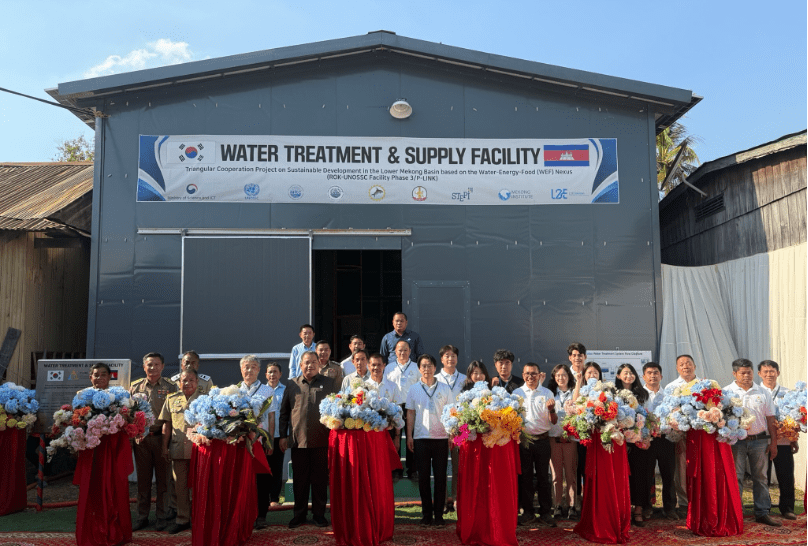
P-LINK Renewable Water Treatment Facility Strengthens Clean Water Access and Food Security Capacity for Mekong-Dependent Communities in Stung Treng
Sdao Commune, Sesan District, Stung Treng Province, Cambodia - 15 January 2026The renewable water treatment facility installed under “Improving Access to Clean Water and Increasing Food Security in Sdao Commune, Sesan District, Stung Treng Province,” a Cambodia pilot...

P-LINK Regional Forum, Supported by the UN Fund for South-South Cooperation, Drives New Water-Energy-Food Nexus Partnerships
4–5 December 2025 | Seoul, Republic of Korea — National and local government officials, regional institutions, development partners, academia, and private-sector innovators gathered in Seoul for the Final Regional Stakeholder Forum of the ROK–UNOSSC Facility (Phase...
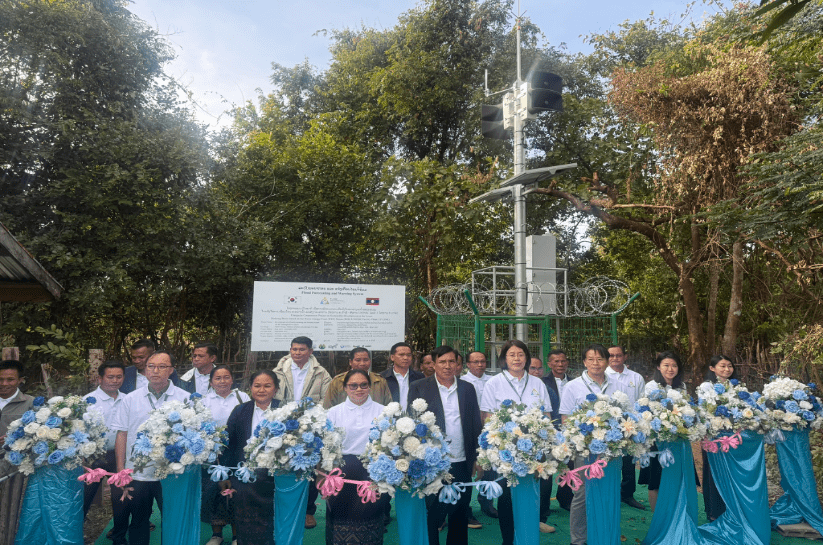
Lao PDR Boosts Flood Preparedness: A new AI-based Early Warning System Improves Community Resilience
Nakio Village, Mahaxay District (27 November 2025) — Lao PDR marked an important milestone in strengthening climate resilience and community safety with the official handover of the P-LINK Lao pilot facilities and the completion of a comprehensive capacity-building...
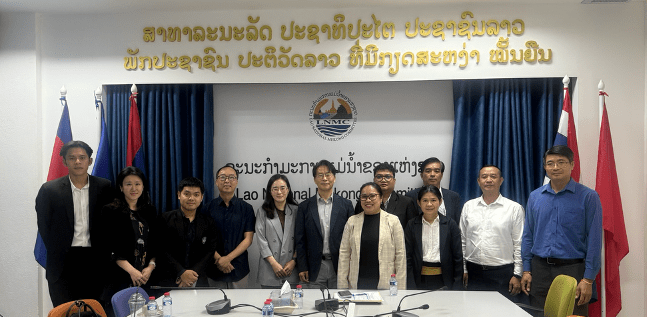
UN Fund for South-South Cooperation Supports Lao PDR’s High-Level National Dialogue on Water Governance Reform
Vientiane, 25 November 2025 — Lao PDR convened a high-level national dialogue today to advance the country’s long-term vision for integrated water governance. Senior officials from the Department of Meteorology and Hydrology (DMH), the Department of Water Resources...


